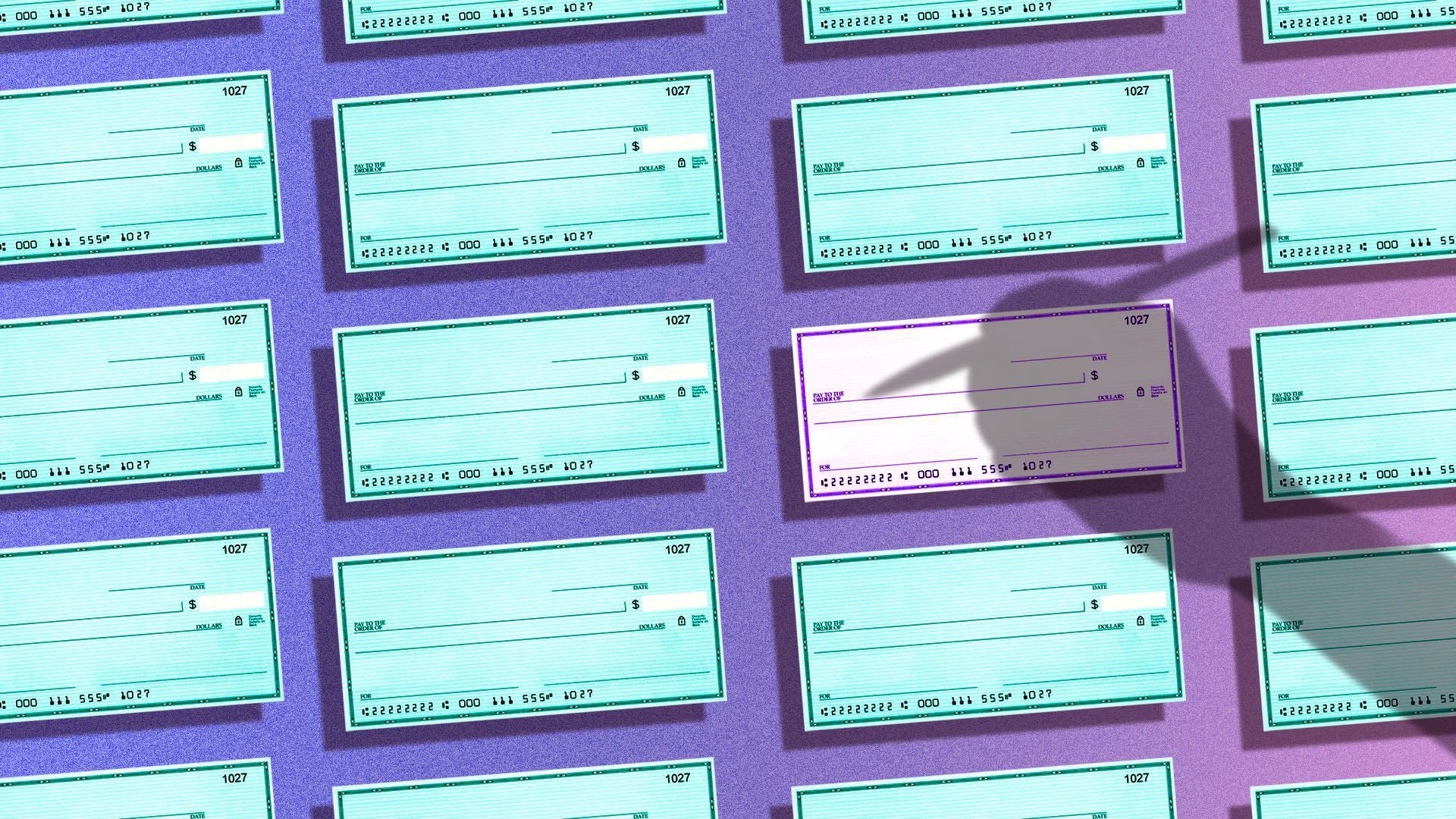SPACs undergo fast evolution as they outpace traditional IPOs
Add Axios as your preferred source to
see more of our stories on Google.

Illustration: Sarah Grillo/Axios
Special purpose acquisition companies, or SPACs, are all the capital market rage right now, easily outpacing traditional IPOs. But, with great volume comes great pressure.
Why it matters: SPAC structures, which had remained stable for more than a decade, are quickly changing.
Background: SPAC sponsors traditionally get two things upfront...
- Around 20% of the SPAC's common stock, post-IPO, known as founder shares.
- Warrants to purchase more common stock, exercisable at a fraction of a common share.
Quick take: This has obviously been a pretty sweet deal for the sponsors, assuming they eventually consummate an acquisition. Not quite money for nothing, but not too far off.
Yes, but: What's happening now is downward pressure on those terms.
- Most of this has been on the warrant side, where sponsors once were able to redeem for upwards of 2/3 of a common share.
- Goldman Sachs, for example, recently dropped warrant coverage on a sponsored SPAC from 1/3 to 1/4, and Kevin Hartz's new SPAC began at 1/4.
- Bill Ackman's recent SPAC, which raised a record $4 billion, did away the upfront founder shares concept altogether. Instead, it gets paid more like private equity carried interest, inclusive of a hurdle rate.
- It's hard to see too many others following him down to zero, but don't be surprised to see 20% become an artifact.
Driving the news: Part of it is simple supply-and-demand competition, given the SPAC spike. But part of it is an influx of a new class of sponsor, including investors who view the SPAC landscape as if it were an orchard in what would later become Silicon Valley.
- "I think this is a revolution, and [changing the terms] could break the backs of lots of these opportunistic carpetbaggers," Hartz says.
- He adds that SPACs are "just in the top of the 1st inning," and that many well-known Silicon Valley venture firms are exploring sponsored SPACs.
The bottom line: If you don't like what you see from SPACs right now, just wait a couple months.
